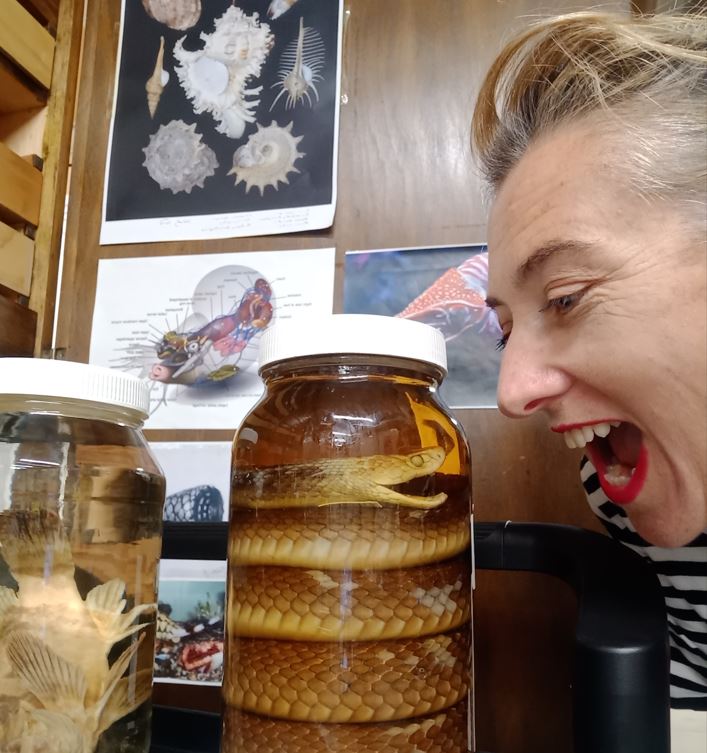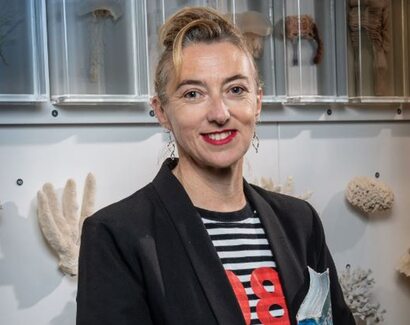
Venom research to drive good

Australia is known for its deadly animals and even is home to the world’s most deadly snakes in the world.
North Queensland’s own Dr Michela Mitchell has set off overseas on her Winston Churchill Fellowship to investigate venom and its applications visiting Belgium, Denmark, France, UK, and the US.
Michela will visit researchers and collections of snakes, jellyfish, sea anemones and other venomous animals, including Seattle Children’s Research Institute where toxins from venomous animals such as scorpions are being used to develop pharmaceuticals.
She spoke with Newsport on the research tour and what could come from her research.
“This work is highly important, not only to Queenslanders but all Australians,” Dr Mitchell said.
“I would like to think my research will benefit locally, nationally, and globally. I would love to see Queensland become a hub for venom research and training the next generation of researchers.”

She has completed her masters and doctorate in sea anemone biology with her doctoral research focused on the toxins in sea anemone venom and evaluating their potential for drug development to treat autoimmune disease.
Venom bio-applications include drugs to treat disease such as stroke or Parkinson’s, anti-venom, or to control parasites/pests detrimental to the agriculture industry.
“Turning venom into bio application requires numerous specialists including identification of venomous animals, venom extraction, chemical analysis, and product development.
“Each aspect has its own challenges and bottlenecks.”
The Fellowship will cover eight weeks in which she hopes to have identified where Australia
excels and where strong recommendations are required for improvement.
“The goal is to shorten the development time for products because thirty years is too long to wait for better anti-venoms along with better treatments.
“Some outcomes I would like to see are less costly anti-venoms with a longer shelf life and treatments for diseases giving a better quality of life.”
Adam Davey, CEO of the Winston Churchill Trust congratulated Michela on her Fellowship and wishes her well on her travels for this important scientific research.
“Michela has already established relationships and trained under leading Australian venom researchers. By heading overseas Michela’s access to international experts will provide the opportunity to gain knowledge of techniques and learn processes not used in Australia to develop new research strategies,” Mr Davey said.
“Over the years, many Queenslanders have been sent overseas through Churchill Fellowships to learn about a topic they are passionate about and bring these learnings back to Australia.
“We want to see more passionate Queenslanders think about applying for a Churchill Fellowship. There are no limits to what your topic could be. There are no educational requirements.”
For nearly sixty years, the Winston Churchill Trust has flown talented Australians around the globe to pursue their passion and bring their knowledge home. Churchill Fellows are people from all walks of life and all sectors, the arts, science, health, agriculture, and beyond.
For Dr Mitchell, the aim of this Fellowship is simple, but the possibilities and opportunities are limitless.
“The Fellowship gives me access to the world to meet with researchers to discuss challenges they face and discuss or view their innovative solutions.”
“I am three weeks into my fellowship travel, and I have seen exciting innovations and gleamed insight into the processes involved with developing venom bio applications.
“All with the added bonus of establishing a new network of researchers for future collaborations.”
Thank you!
Newsport thanks its advertising partners for their support in the delivery of daily community news to the Douglas Shire. Public interest journalism is a fundamental part of every community.
Got a news tip? Let us know! Send your news tips or submit a letter to the editor here.
* Comments are the opinions of readers and do not represent the views of Newsport, its staff or affiliates. Reader comments on Newsport are moderated before publication to promote valuable, civil, and healthy community debate. Visit our comment guidelines if your comment has not been approved for publication.
